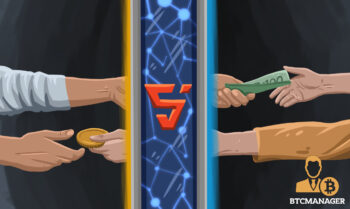
2018-9-19 14:00 |
Smart contracts are becoming an important part of conducting business. In the global payroll space, the technology can rid companies of redundant bureaucracy.
The world of business is increasingly global, but some borders persist. Laws, directives and ways to enforce them change from country to country, rendering international business unnecessarily complicated.
This complication translates into a waste of many work hours. Those hours are spent trying to comply to the different legislation and make sure that the contracts that you care about are enforceable where you need them to. However, an alternative global system — that is both cheaper and more efficient — is emerging due to smart contracts.
A global alternative to archaic bureaucracySmart contracts are a native digital system that is more suitable for the world of modern business. The system works the same anywhere in the world, and it is near impossible to interfere with its functioning.
They are non-bribable since, in many cases, they are enforced automatically by software. Moreover, running on a blockchain ensures that data can’t be manipulated. The price of running a smart contract is way lower and faster than having a document notarized.
There are many reasons why smart contracts and blockchain will probably be a big part of conducting business in the future, and those are just some of them.
Smart contracts applied to international payrollOne of the aspects of global businesses deeply hurt by the fragmented bureaucracy is payrolling. The currently employed systems are plagued by fragmented regulations and laws, inefficient communications and intermediaries. Those problems contribute to making the system unnecessarily complicated and, as a consequence, error-prone.
Smart contracts have been employed to solve this issue by the U.S. startup Horuspay. The system is meant to eliminate middlemen, increase efficiency and simplify the procedures (wasting fewer work hours). The vast majority of organizations don’t contract a global payroll provider but instead use a global payroll aggregator. The middlemen — which is the aggregator — are incentivized to hire the lowest bidder in each country, regardless of the quality of the service.
What’s more, the aggregators also charge a significant premium on the services and — according to the Horus white paper — the smart contract counterpart will be 50-80 percent cheaper. Also, automating most of the process and simplifying — in part by disintermediating — the part of the procedure that is still manual, streamlining it so there is less probability of mistakes.
Another big advantage of smart contracts is how directly and quickly they can interact with funds. Instead of using wire transfers — which are notoriously slow and expensive — this system utilizes tokens for payments. Those transactions are way cheaper and near instant — thanks to the EOS blockchain.
Just like the vast majority of blockchain-based services, you need to have tokens to use Horuspay. The organizations will need one HORUS token per every employee that they wish to pay through the system. The transactions are conducted through the secondary tokens, eosCASH (called Horus dollars before the rebranding).
SecurityThe disintermediation and global nature of the smart contracts grant them great potential. Part of it lies in drastically improving the bureaucracy of the future in many ways, one of which is data security.
Many different copies of the data are stored. As a result, even if one system is compromised and the documents are edited, the original versions are still retrievable. Also, the data is usually well encrypted in such systems (this is the case with Horuspay). What’s more, even when data is stored off-chain, is usually is still verified on the blockchain.
Also, blockchain enabled key management adds further security and convenience. All of this makes services like Horuspay much more secure than the centralized counterparts that are prone to getting hacked.
The post Smart Contracts Becoming an Essential Tool for Business appeared first on Bitcoinist.com.
origin »Bitcoin price in Telegram @btc_price_every_hour
Global Currency Reserve (GCR) на Currencies.ru
|
|
























